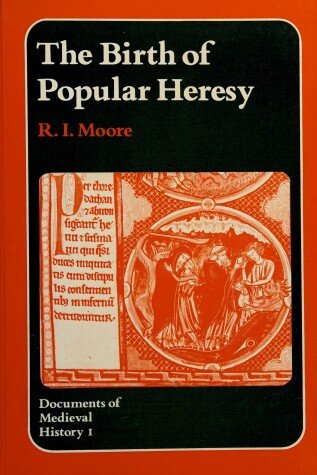MART: The Medieval Academy Reprints for Teaching
2 primary works
Book 30
R.I. Moore traces the roots of dissent, the support which it commanded, and the reactions which it elicted from the holders of established power in the changing needs and conflicts of the expanding society of the eleventh and twelfth centuries: in spite of repression religious uniformity has never since reigned unchallenged. His controversial argument is that the ideas and aspirations of the heretics had far less to do with religious faith or outlook than with the consequences of social anxieties and frustrations. He holds too that similarly the dogma of the Catholic Church can be understood more clearly in terms of the politics of power than of salvation. Originally published by Allen Lane, 1985.
Book 33
The seeds of heresy are contained in Christianity itself, which began as a religion of dissent. In the Middle Ages the Church was the main focus of intellectual activity, and its spiritual leaders themselves often questioned the practices and beliefs which heretics openly challenged. The documentary analysed in this volume trace the development of popular heresy from its beginnings. Four main themes are presented: the first manifestations of popular dissent in the eleventh century; the emergence of evangelical anticlericalism in the twelfth century; the infiltration of western heterodoxy in the mid-1100s; and the establishment and early organization of Cathar Churches in southern France and northern Italy which ultimately led to the inquisition. Originally published by Edward Arnold, 1975.

